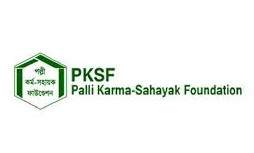The Palli Karma-Sahayak Foundation (PKSF) will install over 500 solar-powered desalination plants in Bangladesh’s coastal belt to combat the acute drinking water crisis faced by low-income communities.
The initiative, under the Safe Water Project, will use Reverse Osmosis (RO) technology to provide safe, clean drinking water in the Satkhira, Khulna, and Bagerhat districts.
The announcement was made on Tuesday at an inception workshop held at the PKSF Bhaban in Agargaon, Dhaka, chaired by PKSF Managing Director Md Fazlul Kader.
PKSF has already installed 83 desalination units in coastal areas, and the expansion to over 500 units aims to increase access to potable water from the current 30.3% to 95% within the next three years.
The project, funded by the Adaptation Fund, is expected to directly benefit approximately 500,000 people, with special focus on ultra-poor households, forest-dependent families, and marginalized rural communities.
Health and Environmental Impact
In his remarks, Md Fazlul Kader emphasized the dire situation in coastal areas where residents are often forced to consume saline water due to the lack of safe alternatives. “This has led to widespread health issues including waterborne diseases, skin problems, high blood pressure, and reproductive health complications, especially for women,” he said. “We are addressing this crisis through sustainable, community-driven solutions.”
Reverse Osmosis Technology
Deputy Managing Director Dr Fazle Rabbi Sadeque Ahmed explained that the desalination plants will use Reverse Osmosis, a technology that removes dissolved salts and contaminants by forcing saline water through a semi-permeable membrane under high pressure. The result is clean, safe water suitable for human consumption.
Continued Commitment Since Cyclone Sidr
PKSF’s Additional Managing Director Dr Mohammad Jashim Uddin noted that PKSF has been actively working on water security in coastal districts since Cyclone Sidr in 2007. “This project reflects our long-standing commitment to improving the lives of vulnerable communities,” he added.
The Safe Water Project represents a major step toward climate adaptation and public health improvement in one of the country’s most climate-vulnerable regions.

